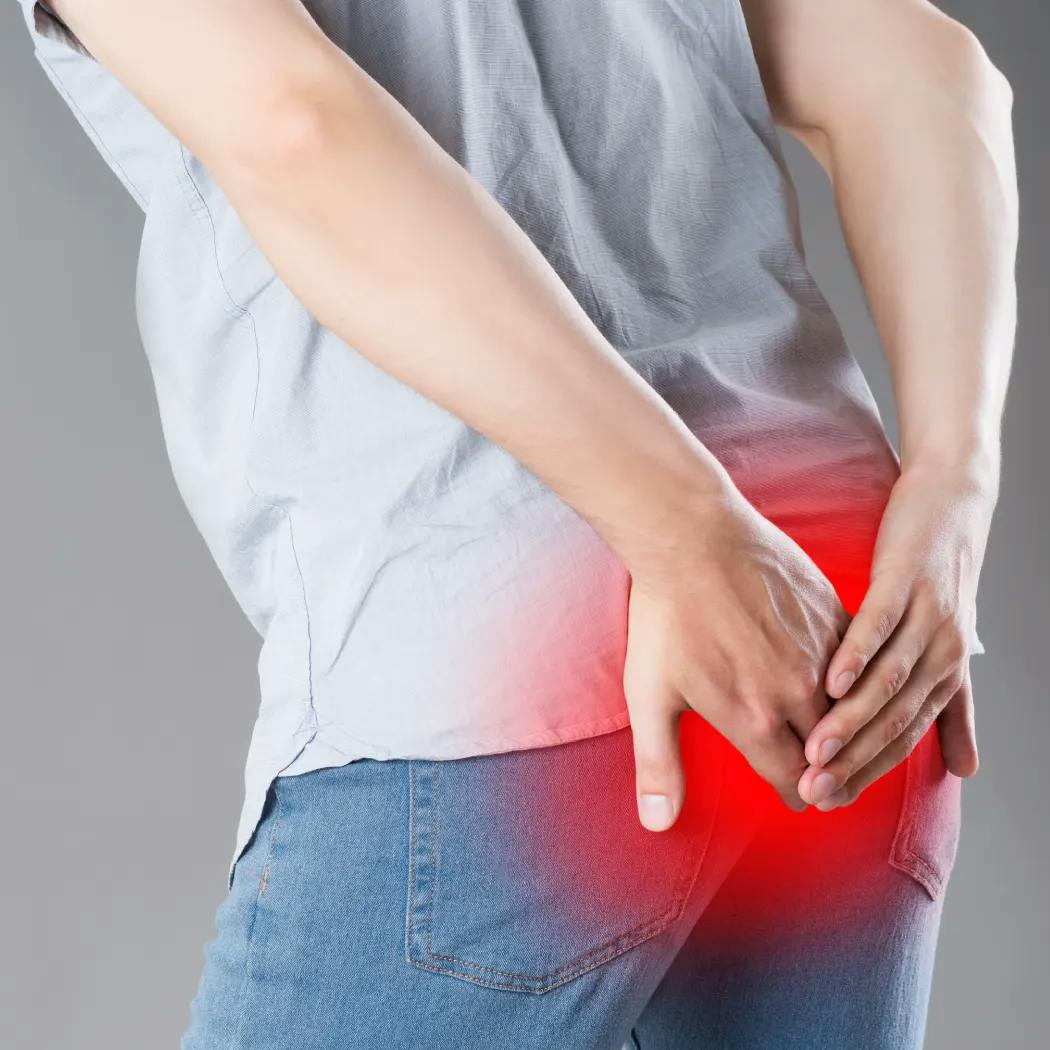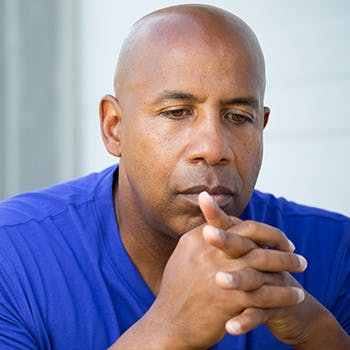A Pain in the Butt: What Could be Triggering Your Butt Pain

While aches and pains of any kind are no picnic, pain in your rear end is exactly what it sounds like. It’s hard to sit down, hard to move and hard to pinpoint the exact cause of what’s giving you grief. Learn some of the common reasons that you may experience a pain in your butt, whether they’re cause for concern, and what you can do about them.
Sciatica
One of the most common causes of butt pain is sciatica, which refers to pain, numbness, and tingling along the path of the sciatic nerve.1 Rather than being its own condition, sciatica is a symptom of injury or pressure on the nerve, which starts in the lower back and travels through the hips and butt and down back of each leg.1,2 This nerve controls your lower legs and back, and provides sensation to the backs of your legs and soles of your feet.1
Because sciatic pain is a symptom of a larger issue, it may be traced to a number of causes including:1,2
- Pelvic injury
- Herniated disc
- Piriformis syndrome
Sciatic pain in the butt may feel like a dull ache, a burning sensation or electric shock, and it may be severe enough to inhibit movement altogether.1,2 This type of pain in the butt typically occurs on one side of the body. The pain may worsen if you’ve been sitting for a long period of time, when you’re sneezing or laughing, or when straining during a bowel movement.1
A mild case of sciatica may go away over time.1 However, you may need to speak to your doctor to determine the root of your discomfort and to determine the best method for managing it.
Piriformis Syndrome
The piriformis is a flat, narrow muscle that runs through your butt from your lower spine to the tops of your thighs.3 There’s one on either side of you and it aids in nearly all lower body movement.3
Piriformis syndrome occurs when this muscle compresses your sciatic nerve, causing pain and numbness in your butt and down the back of your leg.3 This syndrome can be caused by inflammation in the muscle or muscle spasms, which may be caused by a range of activities:3
- Weak or tight piriformis muscles being used for stair climbing, running or improper lifting
- Hip, leg or butt injury due to a fall
- Repetitive motions like long-distance running
- Not warming up before exercise or not stretching properly afterward
- Sitting for long periods of time
The pain in the butt is often described as aching, burning, tingling and numbness and may vary from case to case.3 Treatment typically includes rest, anti-inflammatory drugs, and exercises to stretch and strengthen the muscle.3
Herniated Disc
Another cause of sharp pain in the butt–that also involves your sciatic nerve–is a herniated disc.4 The vertebrae that make up your back are cushioned by discs that act like shock absorbers and allow you to move without pain.4 When a disc is herniated, its structure is compromised and it’s no longer able to properly cushion the bones in your spine, which means the disc may press on spinal nerves.4
Herniated discs in the lower back frequently result in sciatica, which contribute to pain, burning, numbness and tingling that radiates from the butt into the leg.4 The pain is commonly described as being sharp like an electric shock and may be more severe when sitting.4
Medical attention is typically required for spine-related issues, and an MRI may be ordered if symptoms have been present for several weeks.4
Hemorrhoids
While hemorrhoids are rarely dangerous, they can be a real pain in the butt. In your rectum and anus there are small clusters of veins below the mucus membranes that line these delicate areas.5 Hemorrhoids develop when these veins become swollen and distended.5 When hemorrhoids form in the lower rectum, they’re considered internal, and when they develop under the skin around the anus, they’re considered external.5
While internal hemorrhoids are generally painless, external hemorrhoids can be incredibly uncomfortable.5 Symptoms may range from general discomfort to excruciating pain, which may be caused by constipation or the fact that the skin is distended and irritated by the hemorrhoid.6 If a blood clot forms inside an external hemorrhoid, you may experience sudden and severe pain in the butt.5 In fact, one of the telltale signs of hemorrhoids is pain and discomfort.5
A chronic condition, hemorrhoids unfortunately do not just go away, though individual flare-ups may be more sporadic. You can help to avoid flare-ups by staying hydrated and eating a diet that includes high-fiber foods.5 Another option is to reach for an over-the-counter treatment like Preparation H Cooling Gel, which provides temporary, cooling relief for your pain in the butt.
Listen to your body and talk to your doctor if you have any concerns about butt pain, to ensure that you’re properly managing the issue.



